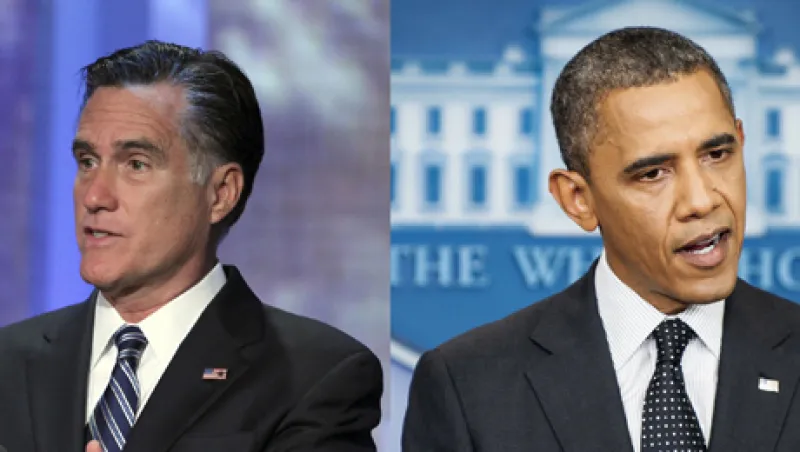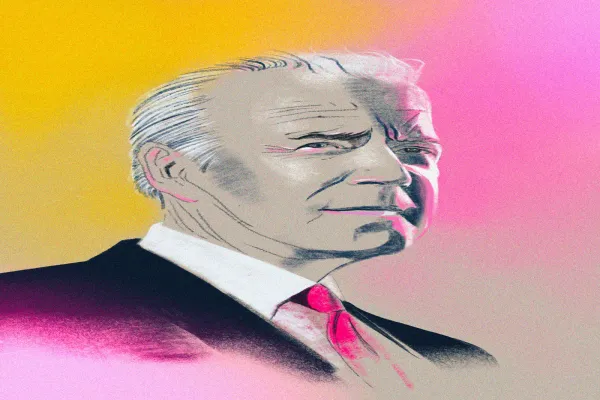An investor who has considered energy plays recently is likely to have done so with the claims and accusations of the U.S. presidential hopefuls ringing in his ears: Romney lambasting Obama for waging “war against oil and coal,” for instance, or Obama insisting that his “all-of-the-above” stance trumps any energy policy that “traps us in the past.”
The oil and coal industry’s strong financial support of the Romney campaign — Americans for Prosperity, the super PAC founded by oil industry billionaires Charles and David Koch, spent more than $30 million on anti-Obama ads between April 1 and July 31 — only furthers the impression that, in this election season, the fate of various energy sectors hang in the balance. But energy analysts insist that’s not exactly the case.
“We really think that a lot of this is rhetoric, and if you look at the policies that are likely going to be pursued by either candidate, the differences are pretty narrow,” says David Lefkowitz, senior equity strategist at UBS Wealth Management Research. He grants that certain Romney energy policies would likely differ from those of Obama — domestic drilling for natural gas and oil could be modestly expanded in the event of a Romney win, for example — but Lefkowitz insists that, despite what investors may have come to assume, these marginal changes “are not so huge in the scheme of things.”
Dwarfing the possible effects of revoked tax breaks for oil companies or relaxed drilling regulations, Lefkowitz says, is the phenomenon of cheap natural gas.
“What’s really driving things is what’s happening with natural gas and the fact that it’s now very inexpensive because of new drilling technologies,” Lefkowitz says. “That’s reshaping the energy markets . . . by making the drilling of fossil fuels much more cost competitive than it was in previous years.”
In other words, the energy industry is indeed transforming, but investors shouldn’t be looking to policy as the major agent of that change.
Leonardo Maugeri, a senior fellow at Harvard University’s Belfer Center for Science and International Affairs and former senior executive at Italian oil and gas giant Eni, has also been assuring the hedge fund managers he consults on energy investments that, regardless of who wins the White House, the energy sector’s current trajectory isn’t bound to change discernably.
“I’ve heard from many of [my hedge fund clients] that they consider energy one of the few sectors where the next few years will see a big revolution that will allow the best minds to make a lot of money,” Maugeri says. “The preoccupation of many investors is what the Democratic administration may do to stop what’s happening [in shale oil and shale gas drilling].”
He says he strongly believes, based on the track record already established by the Obama administration and conversations with Obama’s advisers, that the concern is misplaced. “I believe President Obama will not stop the development of shale oil and shale gas because it’s much too important for the American economy,” he says.
Even in the renewables realm, where Romney has accused Obama of “operating more on faith than on fact-based calculation,” while Obama brags that the country has doubled its reliance on renewable energy on his watch, analysts don’t predict major changes contingent on the election outcome.
One imminent question regarding renewables is on the wind production tax credit set to expire at the end of the year: Obama aims to extend it, while Romney vows to end it. But Pavel Molchanov, the Raymond James analyst who initiated the firm’s alternative energy coverage in 2006, is betting that the wind subsidy will be extended at the end of the year either way. He recently upgraded Broadwind Energy’s stock on this prediction, pointing out that much wind farm activity is based in red states, and that a hypothetical President Romney would face pressure from his own party to continue the subsidy.
Molchanov adds that the all-but-assured partisan split in Congress makes it even less likely that Romney or a second-term Obama could usher in the substantive energy changes their stump speeches promise.
“Are there substantive differences between the two candidates?” Molchanov says. “Yeah, there are. But because it is very unlikely that either will have an unlimited ability to control the agenda, sweeping policy changes are not something that people should expect.”






